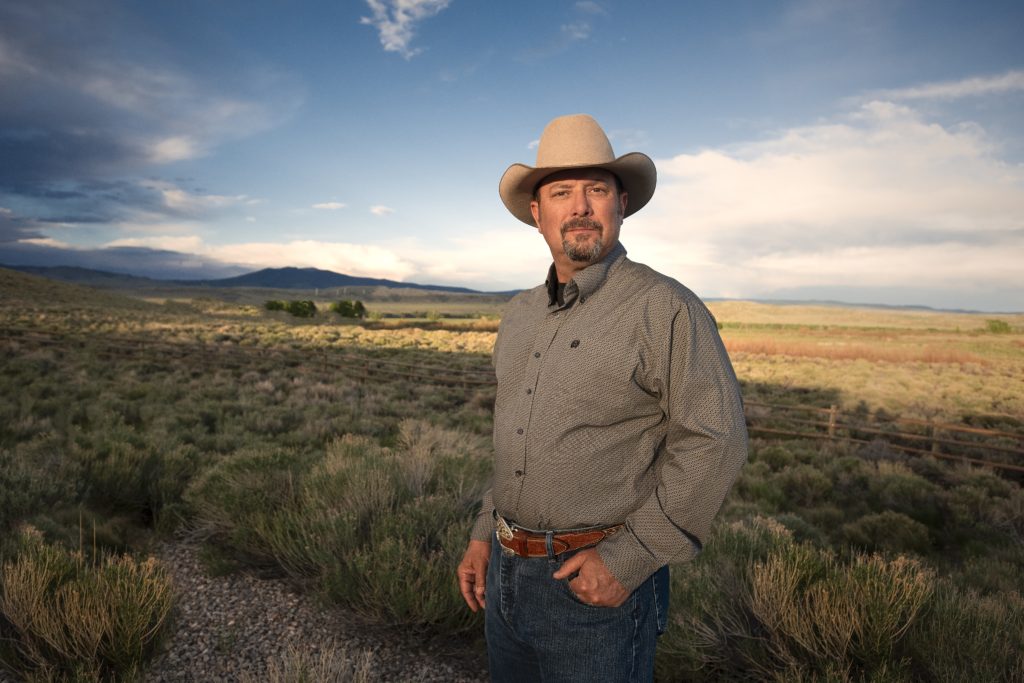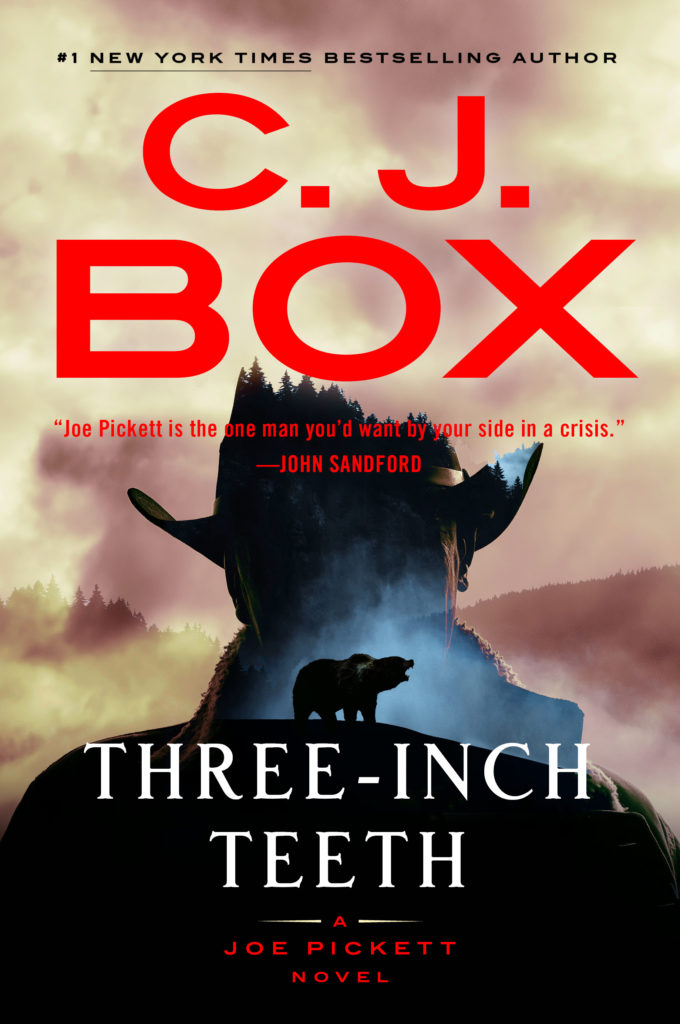
And now, a word with the Journal’s Icons of the West latest honoree, NYT best-selling author C.J. Box—the mind behind literary legend Joe Pickett.
Written by Jenn Thornton
One of the most prolific pens in the American West, with 30-plus works of contemporary western crime under his belt, the Cowboy State’s C.J. Box came to prominence on the back of everyone’s favorite protagonist, Wyoming game warden Joe Pickett, a good guy rooting out wrong in his own backyard. He stays there with best-seller after best-seller.
This month, Box’s beloved character is back in the series’ newest novel, Three-Inch Teeth. So, the Journal dropped in on the author and outdoorsman to talk Pickett, plotlines, and the place he calls home.
C.J., before we get to your new book Three-Inch Teeth, tell me about what formed you as a writer?
Now that I look back at it, everything I’ve done over the years helped form me as a writer, although I didn’t have a strategy at the time.
As a youngster, I was a voracious reader of every kind of book. My favorite authors were—and are—Joseph Heller, Raymond Chandler, Flannery O’Connor, Thomas McGuane, and so many others. I used to bring along books in my backpack and saddlebags while camping or riding into the mountains. I went into journalism out of college and got a job at a small Wyoming weekly, which taught me to make deadlines and be prepared to interview people of all walks of life.
Later, I was involved in the tourism industry and hosted scores of international journalists on trips and adventures across the Mountain West. That not only exposed me to all kinds of outdoor activities, but I could witness the uniqueness of where I lived through the eyes of people not familiar with the territory. When I sat down to write a fiction novel in the mid 1990s, I found I could draw on all these experiences.
Your books have elements of a traditional Western but are set in contemporary times. Talk about the themes you like to explore.
Aside from the location, which is a natural, I often dig deep into the culture and mythos of the old west verses the reality of the new west. Like old westerns themes, the plot and action are often set in motion when outsiders arrive with different ideas, ideologies, and morals and they try to impose them on the locals. Also, the theme of a family or community confronting the abuse of power from bureaucrats and politicians from thousands of miles away is a central theme.

Tell me about your newest novel, Three-Inch Teeth. What is facing Joe Pickett this time around?
A three-hundred and fifty-pound grizzly bear! In the last decade or so, human and grizzly encounters have skyrocketed in the Mountain West. The reasons are multiple and hotly debated, but the fact is that more people have been attacked, mauled, and killed recently than ever before. In Three-Inch Teeth, Joe faces a bear that attacks at random as well as human predators just as deadly.
Joe Pickett is a quintessential Western hero—a good man trying to do right by rooting out wrong. He’s inherently likeable, but not one-note, either. Why do you think the character has legions of fans? Is it that people can see themselves in him, or that they want to?
I hope so. When I created Joe, I wanted a protagonist who was human and could—and does—make mistakes. He also dotes on his wife and three daughters. I think creating an empathetic hero increases the tension in the books because the reader knows Joe might screw up. Like all of us.
How much of Joe Pickett comes from inside you and how much comes from other people?
I’ve always thought of Joe Pickett as a very typical Wyoming, or western, type. He’s not based on any one person, including me. I’ve met many Joe Picketts over the years who work hard, play by the rules, and try to do the right thing. Many years ago, the only daughter of Gary Cooper thought that I was channeling her father, who was born in Montana, in the character of Joe Pickett. I’m fine with that.
One of the things I appreciate about your novels is how the West is a kind of character—it’s always there looming in a rich way.
It’s easy to pander to readers by presenting a West that conforms to stereotypes and tropes, where every character is laconic and rural and seems to talk with a deep Southern accent. I think it’s more interesting, and authentic, to portray real people set in a semi-mythical landscape who are not all rubes. The past is present, but it isn’t omni-present, in other words.
What, in your view, makes the West such fertile territory for the good guy/bad guy narrative and for creativity more broadly?
The West is our King Arthur and the Roundtable or our samurai mythology. We’re all aware of it, even if we don’t know the facts and we don’t know what was real. But as far as our country is concerned, the opening of the West is our script as to who we are.
Writing what you know has served you well. Tell me not only about writing about the West, but also living there. In what ways does Wyoming shape your work and your life?
I like living in a small mountain community and participating in day-to-day life, where no one really gives a rip that I’m a best-selling writer. It not only provides constant subject matter and content, but I can’t act like a big shot. Plus, it’s important to me to be close to fly-fishing, hunting, hiking, and other outdoor activities.
“I like living in a small mountain community and participating in day-to-day life, where no one really gives a rip that I’m a best-selling writer.”
You’ve written over 30 books, won tons of awards, and charted on the NYT bestseller list umpteenth times. But what are your personal benchmarks for success?
It used to be achieving #1 on the best-seller lists. Now it’s seeing how many weeks each book stays on the lists as well. But I think the most important benchmark is that people in my community, state, and region read the books and think they’re important and authentic.
A few fun questions: Who is your fictional hero?
Captain John Yossarian of Catch-22.
If the Duke was with us today, what plotline would you dream up for him?
Hmmm. I’d probably have him arrive in Saddlestring and say he was looking for his long-lost son Nate Romanowski.
Finish this sentence: John Wayne and Joe Pickett walk into a bar…
…and take a booth near the back of the Stockman’s. Women swoon and men do spit-takes of their beer. No one inside is paying any attention to Joe.
Photos courtesy of Penguin Random House


